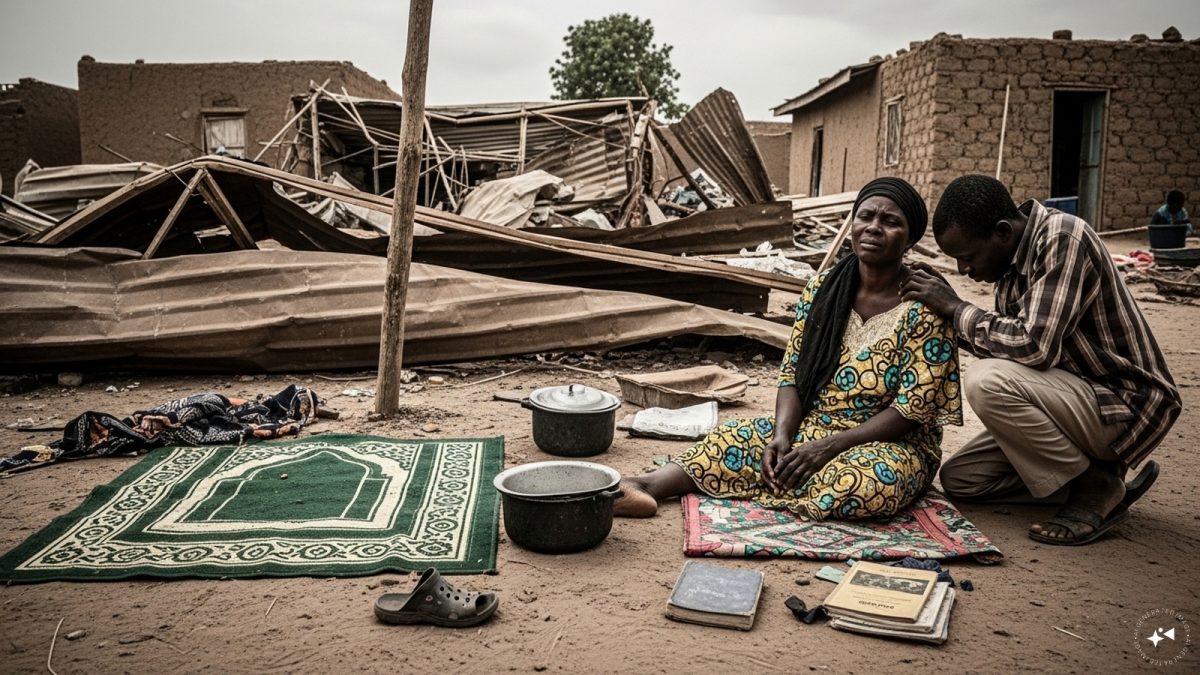Jihadists killed at least 55 people in northeast Nigeria while storming a town home to residents who had been returned from a closed camp for internally displaced persons.
At least 55 people were killed when jihadist fighters stormed a town in northeast Nigeria on Friday night, targeting residents who had only recently been resettled after the closure of a displacement camp, local sources told AFP.
Gunmen on motorbikes swept into Darul Jama, a border town near Cameroon that also hosts a military base, opening fire and setting homes ablaze. Witnesses said the attack began around 8:30 pm, forcing families to flee into the bush.
“They came shouting, shooting everyone in sight,” said survivor Malam Bukar, who escaped with his wife and children. “When we returned at dawn, bodies were everywhere.”
Casualty figures remain unclear. A militia commander reported 55 dead, while an NGO worker put the toll at 64, including several soldiers. Many of the victims were among families relocated from a government-run displacement camp in Bama earlier this year.
“The government told us we would be safe here,” said Hajja Fati, who lost her brother in the attack. “Now we are burying our people again.”
Security officials believe Boko Haram commander Ali Ngulde led the assault. The region has long been contested between Boko Haram and its rival faction, Islamic State West Africa Province (ISWAP). Both groups have stepped up raids despite claims that violence had ebbed since Boko Haram’s peak in 2013–2015.
Recent data from Good Governance Africa points to nearly 300 jihadist incidents in the first half of 2025, leaving about 500 civilians dead and at least 17 Nigerian military bases overrun. ISWAP has expanded its reach using drones, night raids, and foreign fighters, analysts say.
The resurgence is compounded by wider pressures: Niger’s withdrawal from a multinational security force and Nigeria’s overstretched army, which is also battling rampant banditry in the northwest. Economic hardships under President Bola Tinubu have further fuelled resentment in rural areas, creating fertile ground for armed groups.
Jihadist resurgence
Boko Haram has been waging a bloody insurgency to establish an Islamic caliphate in northeast Nigeria since 2009, leaving around 40,000 people dead and forcing more than two million people to flee their homes.
Rival ISWAP split from the group in 2016. According to a tally by Good Governance Africa, a non-profit, the first six months of 2025 saw a resurgence in jihadist activity.
There were some 300 jihadist attacks that killed some 500 civilians, mostly by ISWAP, which has gained ground in recent years over the more fractured remnants of Boko Haram.
ISWAP overran at least 17 Nigerian military bases in that time period, aided by an uptick in its use of drones, night time attacks and foreign fighters, according to GGA.
The resurgence in jihadist violence comes as neighbouring Niger has pulled back from a key multinational task force and the Nigerian military has become stretched by a separate banditry crisis in the northwest.
A biting economic situation under President Bola Tinubu has reinforced the grievances that many armed groups feed off in rural areas, some analysts argue.
With inputs from agencies
End of Article

)

